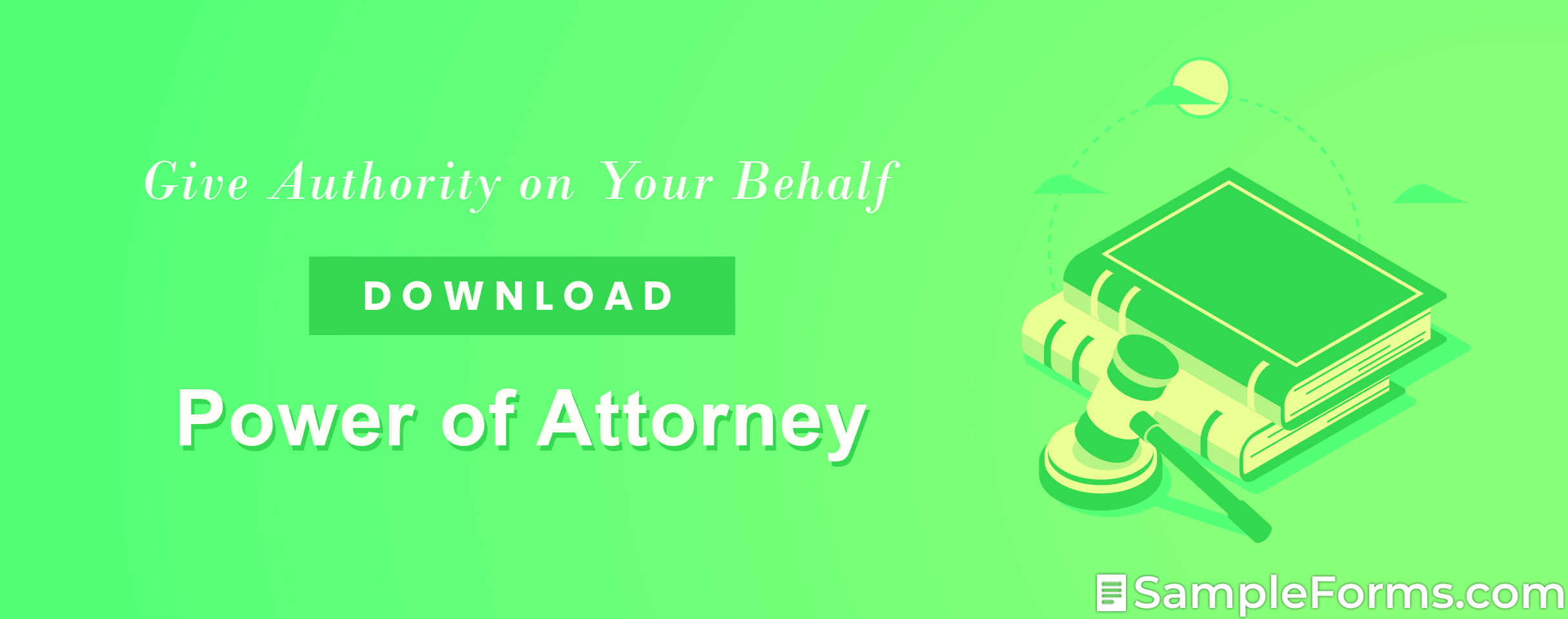- Eviction Notice Forms
- Power of Attorney Forms Forms
- Bill of Sale (Purchase Agreement) Forms
- Lease Agreement Forms
- Rental Application Forms
- Living Will Forms Forms
- Recommendation Letters Forms
- Resignation Letters Forms
- Release of Liability Agreement Forms
- Promissory Note Forms
- LLC Operating Agreement Forms
- Deed of Sale Forms
- Consent Form Forms
- Support Affidavit Forms
- Paternity Affidavit Forms
- Marital Affidavit Forms
- Financial Affidavit Forms
- Residential Affidavit Forms
- Affidavit of Identity Forms
- Affidavit of Title Forms
- Employment Affidavit Forms
- Affidavit of Loss Forms
- Gift Affidavit Forms
- Small Estate Affidavit Forms
- Service Affidavit Forms
- Heirship Affidavit Forms
- Survivorship Affidavit Forms
- Desistance Affidavit Forms
- Discrepancy Affidavit Forms
- Career Assessment - 16+ Examples, Format, Tips, Pdf Forms
- Undertaking Affidavit Forms
- General Affidavit Forms
- Affidavit of Death Forms
Power of Attorney Forms
You can’t always be where you are needed. But that doesn’t mean that you still can’t perform your obligations even when you’re away. Whether for convenience or good measure, you will find that preparing a power of attorney will come in handy one day. When you’re not in a condition to make legal decisions. But is it a good thing to give someone such power over your personal and business arrangements? Of course. Find out more about a Power of Attorney and how to complete one that is legally reliable by reading this article. Read More

By Type
- Real Estate Power of Attorney
- LGBT Power of Attorney
- Healthcare Power Of Attorney
- Vehicle Power of Attorney
- Offer Letter – 58+ Examples, Word, Pages, Google Docs, Outlook, How to Write, PDF
- Revocation of Power of Attorney
- Enduring Power of Attorney
- Limited Power of Attorney
- Special Power of Attorney
- General (Financial) Power of Attorney
- Durable (Financial) Power of Attorney
- Minor Child Power of Attorney Form
Power of Attorney Forms
You can’t always be where you are needed. But that doesn’t mean that you still can’t perform your obligations even when you’re away. Whether for convenience or good measure, you will find that preparing a power of attorney will come in handy one day. When you’re not in a condition to make legal decisions. But is it a good thing to give someone such power over your personal and business arrangements? Of course. Find out more about a Power of Attorney and how to complete one that is legally reliable by reading this article.
What Is a POA and When Should You Get One?
A person can use a POA to authorize someone to act on his or her behalf. POAs are common in real estate, business, health, and finance sectors. You can authorize someone you trust to handle your business or personal affairs when you are not there to do so. Being someone’s agent is a big responsibility. This appointed person has to act for the principal’s interest alone. In all cases, the critical ingredient is the principal’s absence or lack of capacity to make a decision that that person can make on a good day. So, he or she grants a trustworthy agent the authority to perform the principal’s duties.
How to Write and Use a POA
There is no telling when or where you might need someone to stand for you. For instance, no one knew that at the start of 2020, a health pandemic would sweep over the world. Its scale was unprecedented. As more people are undergoing self-quarantine, businesses and transactions are almost at a standstill. It is hard to keep things moving when people in charge cannot be present. While you may run into trouble by giving someone the authority over your personal and business transactions, there will be moments where that is just what you need. So, how do you minimize your risks and still benefit from what a POA can offer?
1. Outline the Right POA for You
The first step to minimizing risks is to avoid unnecessary risks. That is why you have to know the right type of POA that will cover your needs and nothing more. If you are not willing to expose yourself to a higher level of risk, you might want to use POAs that have a limited scope. Of course, this is still subject to your needs. If you just need someone to do a few paperwork for you while you’re gone, get a POA that covers just those responsibilities. The document has to specify the power and restrictions that are given to your attorney-in-fact.
2. Choose a Person You Can Trust
You are granting authority to someone to stand in for you. You will be liable for that person’s actions. When an agent is acting through a POA, he or she has to put your interest first. Especially for finance, business, and health, it is essential to get someone who knows what he or she is doing. The agent should be knowledgeable and accountable so that he or she can make informed decisions. Although it is not unlimited, the power to perform a broad range of functions even after you are injured leaves considerable room for misuse.
3. Write the Specifics and Write Them Clearly
Think of a power of attorney as a set of instructions that your agent has to follow even when you’re not there to see it through. You should spell the names of the principal and the attorney-in-fact correctly and label each accordingly. It is to indicate who is giving the authority and who is receiving the powers. Clarify the powers and scope that you are giving the other person. Ambiguity gives space for misinterpretation. Your POA should be detailed and specific so that the agent can carry out your instructions as you would yourself. You also have to indicate when the document will become effective. The POA can be springing or non-springing, depending on your explicit declaration.
4. Notarize the POA
The document is valid when it has been notarized. When you made the POA yourself, let a lawyer review your paper. You may not be well-versed with the laws in your state, so it is a good idea that someone knowledgeable on legal matters can have a look at your POA. Some states may not require that your document is notarized, but it is safe that you still take this extra step. You can contact your local notary to ask for their requirements on validating power of attorney.
FAQs
Can family or relatives revoke a power of attorney?
The answer depends on the kind of POA and why they think the POA has to be overridden. The principal can cancel the document. If the person seeking the document’s cancellation is not the principal, they can still try to do so. This usually happens when the family or relatives see that the agent is abusing his or her powers. But this motion has to be fought in court.
Is a power of attorney valid after death?
No. The agent’s power, as granted by the principal through a POA does not go on after the principal dies. When you want your attorney-in-fact to manage your legacy assets and their distribution after you have died, you have to write an estate plan and name your agent as the executor of the state.
How long is a POA effective?
A POA’s validity depends on how long you, the principal, specified it in the document. It can either be within selected dates only or until you’re deceased.
Is a power of attorney valid in all states?
The document is valid in all states. However, the rules can be different from one state to another.
Can I open or close bank accounts with a power of attorney?
Yes, you can do so when you specified this responsibility in your POA.
With the convenience that a power of attorney offers comes the risk that someone will use this power to serve their end. Letting others have any level of control over our lives, whether temporarily or until we die, is a big decision that we need to think through. However, that doesn’t mean that you should forgo the benefits of a POA completely. This just means that we should exercise caution and discernment over the kind of power that we give others.

